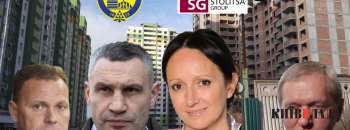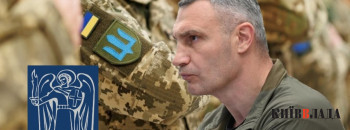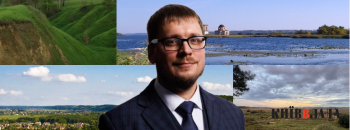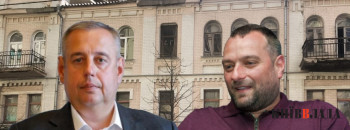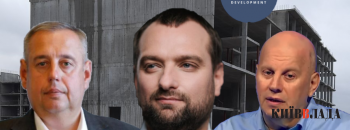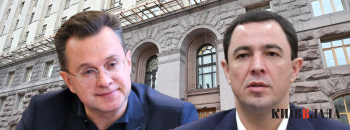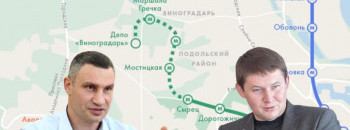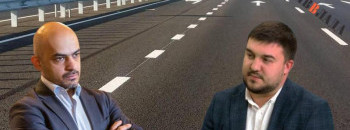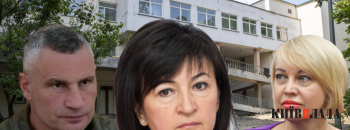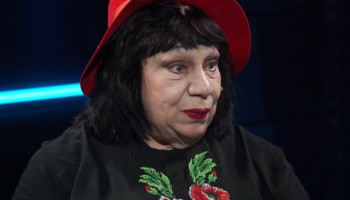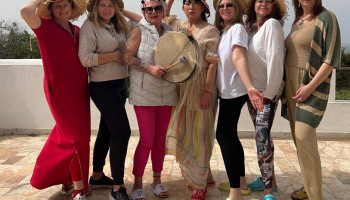Professor Eeva Luhtakallio (University of Helsinki): “Everybody in Finland talks about Ukraine constantly…”
Interview with Professor Eeva Luhtakallio (University of Helsinki, Finland) is devoted to the program of support for Ukrainian students, which was established at this university. How to study in Finland for free? What are the main problems, Ukrainian students faced, being at Finnish academic environment? Why is sociology important in contemporary world? These and other questions are discussed.
Conducted by Professor Sergiy Kurbatov, Kyiv National Economic University named after Vadym Hetman
S.K.: We speak with Professor Eeva Luhtakallio from University of Helsinki. Eeva, thank you so much for your support of Ukraine and Ukrainian students! Could you briefly introduce yourself, your department and your university at the beginning of our interview?
E.L.: OK, so I am Eeva Luhtakallio, professor of sociology at the University of Helsinki. We are located at the Faculty of Social Sciences, and sociology is one of the biggest disciplines of the faculty. I am myself specialized especially in political sociology and related social theory; I have studied civil society, activism, and political participation, for example, often from a pragmatist theory starting point. I teach sociology, but I also do administrative work and am currently the head of the discipline of sociology. I also lead a few research projects and a center called the Center for Sociology of Democracy, where we carry out a lot of different types of research on political sociology and democracy-related topics. Otherwise, at the sociology discipline, there are many colleagues with expertise in science and technology studies, sociology of work, sociology of migration, sociology of addiction, conversation analysis, and so on. We have altogether more than 100 faculty members, grant researchers and doctoral researchers in sociology. You can find more information about our department at our www-page[1]. General information about our faculty is presented here[2]. Sociology is a part of two BA and four MA programs. Students here choose their main subject only after studying for 2-3 years in the BA program, until then they study all the topics involved in the program.
S.K.: Currently we have an admission campaign in Ukraine, so could you explain, why is it important to be a sociologist in contemporary world?
E.L.: Well, sociology in general, of course, as all social sciences, is a crucial source for us to understand how societies work. Sociology provides students with a critical view on power structures and different kinds of “social self-evidences” that all societies have. And I think that, especially in times of crisis and for instance thinking of the massive reconstruction process that Ukraine will be facing after the war, sociology offers important tools to reconstruct the society. I know that the Ukrainian society, already before the war, had quite serious problems of corruption, for instance. In order to understand how societal structures function and how to establish structures and practices that would be more sort of healthy in a sense, I think social sciences are very good base education for that kind of work. So, for work in administration for example, but the kind of transparent administration with a critical perspective on the will of those in power that would build sustainable societal conditions for the future of Ukraine. Other than that, of course, sociology is a very wide topic that can provide various kinds of important input to the society. So, for instance, at the moment, I have recruited here in Helsinki one Ukrainian PhD student who is conducting his doctoral research studying the occurrences of Russian propaganda in the Internet, using computational tools to follow for instance the occurrences of certain kinds of words and thus certain kind of propaganda that the Russian war machinery is producing, linked to certain events and periods. So, actually, this kind of sociological research is at the heart of understanding also what goes on at the moment. More in general, propaganda and polarization, as well as political influencing by images in social media are topics much studied by sociologists currently, including people my wider research group, and we are carrying out transnational comparisons in order to understand how these trends emerge and spread in different countries. Of course one question to look into is how we could, based on knowledge gained from sociological studies, also fight the consequences of propaganda and trolling and all these kind of dark features of Internet that, of course exist, and many of them are controversial – important to their users, but also with lots of consequences that are very concerning in terms ranging from political debate to actual security issues – in Ukraine like in other countries. Just today there was again news about a terrorist attack in Copenhagen by a young white supremacist who had been posting anti-Muslim content to the Internet and then took a rifle and went to a shopping mall. So, this goes on all the time. And in order to understand the bigger picture and the building blocks for these kinds of processes and cultures, sociology can be quite strong a tool.
S.K.: So, sociologists would be always demanded at the labor market?
E.L.: Yes, I am quite sure. Also, sociology gives a basic training to do statistics, which of course, important in all kinds of administrative work. We need statistics! And equally, more interpretive, qualitative methods to analyze different data and make sense of the world.
S.K.: You said that sociologists have dealt with the most dramatic things, and the war, perhaps, is one of the most dramatic things in contemporary world. I remember how we, Ukrainians, and our friends all over the world were shocked, when Russia started the bloody war against Ukraine. Do you remember how you come to the decision to support Ukraine and to host Ukrainian students? Could you explain your motivation to provide this support?
E.L.: Well, actually, it is quite simple. The war began and I was also very shocked and anxious about it. And, to begin with, this was just me acting as a single person. I was thinking what I could do apart from donating to the Red Cross and things like that. I thought of writing short solidarity messages to Ukrainian colleagues at different universities and sociology departments – thinking this is probably not very useful, but what else could I do... So I wrote short messages simply to say: “Dear colleagues, this is horrible, we are here. Is there is something you can come up with that we can do to help?” And then, I got a few responses. The most precise one was from the vice dean of the faculty of sociology at the Taras Shevchenko National University of Kyiv Taras Tsymbal. We started to communicate and then after week he said that he is thinking of sending his students abroad because it is not going to be possible to have them all studying in Ukraine with the war going on. And he had a really good plan because he had decided that he would group the students according to cohort so that this would be a group of students who are at the same study level and also know one another. I said okay, so let us make this happen somehow and then I spoke to our dean and vice-dean at the faculty and asked: “Can we do this?” And they said: “Well, let us find some way.” And then I started to organize it. So, it was basically me and Taras Tsymbal who started this project. It was not easy, Taras did a huge job gathering all the information from the students and their possible flight schedules and such, at the time the students were scattered in different places of Ukraine, some were already as refugees in Poland and Germany. At first, we talked about a group of 7 students, but eventually, we were able to gather a bigger group. Currently we have 21 Ukrainian students including 2 PhD students.
S.K.: Are all of them from Taras Shevchenko National University of Kyiv?
E.L.: One of the PhD students is from Kharkiv. She contacted me because I also wrote to the website called “Science for Ukraine.” There were volunteers I know that went around reception centers in Poland and in Germany and distributed knowledge. And I think they have done a wonderful job trying to distribute knowledge also in Ukraine about these possibilities. So Mariia from Kharkiv had got the information through “Science for Ukraine”, I believe, she contacted me through this route. But I have to say that most of the first-hand organizing work was possible because Taras was doing such a great job. He spent countless hours negotiating with the students and getting information about their plans and whereabouts. From our side, we did not know exactly what to do with the students administratively really, but we had decided at the faculty that we will find some way to include them to our studies. As I had my faculty leadership support, I thought, ok, so we will manage this somehow once we have the students safely in Helsinki. This was really quite at the beginning of the war, and the situation was acute. There are few male students in the group as well and especially for them, it was really urgent to get them out to make sure they can continue their studies. So, we kind of took risks and thought that ok, so we will just figure it out on the way. And then, during the process when we already had a couple of arrival dates and things were getting really concrete, the Rector of the University of Helsinki made a decision to open study rights to all Ukrainian students, granting them access to similar rights as exchange students. So, she declared this sort of special right for Ukrainian students to conduct studies at our university. They do not have the right to get our diploma though, so they need to be students already in Ukraine in order to study here, for now at least. This decision helped a lot because then, with the rector’s decision, we could say ok, so we already have this bunch coming, and they got the official right to study right away.
S.K.: Is this possibility for Ukrainian students still working?
E.L.: Yes. It is still working.
S.K.: What are the deadlines to apply for study?
E.L.: At the moment, the study right has been granted until end of July 2023. But then, of course, this all depends on how the war goes, and it is possible that it will be extended. At least these students who now arrived mostly in April have already made a plan to stay for the next year and to study here.
S.K.: What should Ukrainian student do in order to apply for study at University of Helsinki?
E.L.: The student needs to fill a special form and give some information – you could find the detailed information here[3]. It is important to have sufficient level of English, because all these studies need to be conducted in English.
S.K.: Due to the war we have a restriction for males aged 18-60 to go abroad. Did male students, who decide to study at your university, face certain problems with crossing the border?
E.L.: As I understood, one of the qualified reasons for male citizens not to be included in the armed forces is that they have studies ongoing. This includes studies abroad, and so with a right to study at a foreign university, you should have the right to cross the border. But it required some additional paperwork and a special invitation from the university, whereas for female students this was not necessary. So we had some issues with border control, yes.
S.K.: Could you evaluate the general level of preparation of Ukrainian students who come to study?
E.L.: Most Ukrainian students who came here after beginning of the war are BA students. They are very young compared to our students because our students begin university at age of at the earliest 19 or 20. The Ukrainian students, they were 19 or 20, all of them. Most of them are very good students, I would say. Their level of English varies somewhat. Some struggle a little bit because they have not studied in English before, and I completely understand that. Also, the way we study here is dramatically different from Ukraine so they have really had to make huge efforts, and I really respect them for the very hard work that they have done. It was difficult for them that they arrived basically towards the end of our academic year. They arrived in the middle of our so-called period four, which is the last period of the spring. All the courses had started already, so we had to put together some special arrangements and while is required volunteering from our teachers, it also demanded a lot from the students. I am sure that the next year will be easier. This spring it was really complex also because the group from Kyiv had a requirement to get 30 credits by July – which is a lot – from their own university to keep in the pace of their diplomas. So, it was a bit of a struggle, and also because of this scheduling situation we had to offer them quite a few book exams, for instance, and they had never taken book exams because their studies so far in Ukraine had not included such a thing at all. So, you can perhaps imagine what it was like. We had to start by explaining what does a book exam mean, and how to study for one. Fortunately, we had a few courses to offer as well, and there were several teachers who volunteered to help. We improvised and put together small group teaching so it would be a bit easier for them to get through the required courses. They worked really hard I have to say.
S.K.: Do Ukrainian students have a possibility to study Finish language at initial level?
E.L.: This was not really my preoccupation this spring so I do not know exactly – I know there will be more opportunities for this next fall though. I think that for this spring, most of the students just had their hands full, trying to adjust to living in a different country. I remember I went to the airport to meet one of them who was arriving alone and she said this was the first time she flew an airplane in her life. So, many of them had not much traveled at all. They are far from their families, so it has also been emotionally very hard for them. We have a big group of volunteers here who has tried to help out. Also, I have to tell you that when their arrival dates started to be clear, we started thinking where we are going to put these students. Of, course, the state offers the reception centers, but these are not very nice places to stay. So, until the end of May, they all actually lived in our faculty people’s homes. So they all had home accommodation.
S.K.: So, it was a free accommodation?
E.L.: Yes, and from June, for this summer, I managed to negotiate that they got to stay in our student dormitory that exchange students use during the semesters. The company that maintains the dormitory accepted to host them for free for the summer.
S.K.: You already have a successful experience of cooperation with Taras Shevchenko National University of Kyiv. What do you think about expanding of the number of your Ukrainian partners?
E.L.: Yes, I think that now we begin to have a system, so it is getting better because in the beginning, we were just improvising because anything like this had never been done before. So, now we have a system, now we know how to work things out. Of course, there are some limits on how many students we can take in into sociology because already these 19, they almost double the number of one cohort of our BA students, but certainly there are possibilities in our MA programs, and in the other disciplines of the faculty too.
S.K.: You face soft Ukrainization of Finish academic environment.
E.L.: Yes, I guess you can say so. I mean, it is feasible, and we are working it out. It is fine. And also, there was an offer for funding from the Ministry of Education in Finland for some extra funds for us to better accommodate and be better prepared to offer courses for Ukrainian war-fleeing students we just applied for, I hope we will get some budgetary help from there. So, yes, we have a system now, we know how to do it. The thing that we discussed long time with Taras Tsymbal from Taras Shevchenko National University of Kyiv was that I think the university there would have preferred that we establish an Erasmus exchange program, but it does not depend on us. The university has a centralized international relations administration, and they did not agree, so we could not do that. But despite this and thanks to decisions taken in the Erasmus program, the Ukrainian students did receive the Erasmus exchange student scholarship for next year, which is really great because the income question is, of course, a very big and difficult one. This is why we have had to figure out free-of-charge accommodation, for instance, because the students, until now, only received a reception money from the state – 270 Euros per month, with which one cannot live in Helsinki. In addition, the University of Helsinki donations team collected a small grant for them. But now they luckily have the Erasmus scholarship, which will help them to settle properly in student housing facilities. If the Erasmus organization continued granting Ukrainian students this scholarship and if, in addition, they could apply for it already before they even arrive, that would make things a lot easier. It is really great if this scholarship thing works out now and for future refugee students.
S.K.: Thank you very much. And the final question. Would it be possible to establish a program of mutual exchanges between University of Helsinki and Ukrainian universities after the end of the war? Would it be interesting for Finnish students to go to study in Ukraine as exchange students?
E.L.: I hope so. Personally, I am very much engaged now in building these relationships with Ukraine, and I hope that we can continue. I am quite sure we can continue with the work that we had started with Taras Shevchenko National University of Kyiv. I am very concerned about the news I have heard from how the Ukrainian state is cutting university funding, so I have the feeling that for some years the exchange will be mainly about us helping out because it is obvious that with that kind of cuts, the university system will be harmed for a long time and will not be able to function properly. But I am sure that, with time, this will become a more kind of equal exchange relationship. There is nothing good about the war, but maybe we can make something good out of it this way – by making sure it can actually open this new kind of exchange relationships. And, of course, now there is the opening of the potential path towards Ukrainian EU membership and so on. I think that if something good came out of this it is that Ukraine has made its way to our knowledge and conscience for good. Everybody in Finland talks about Ukraine constantly. Probably this is true in all of the other European countries, but I still think that the bordering states like Finland, or Estonia, Lithuania, Poland… and so on, who are quite aware themselves by the overall threat that the instability of the Russian society creates, perhaps we are particularly open to collaborate with Ukraine.
[2] https://www.helsinki.fi/en/faculty-social-sciences/about-faculty
[3] https://www.helsinki.fi/en/admissions-and-education/studying-opportunities-persons-who-have-arrived-finland-ukraine-due-war

